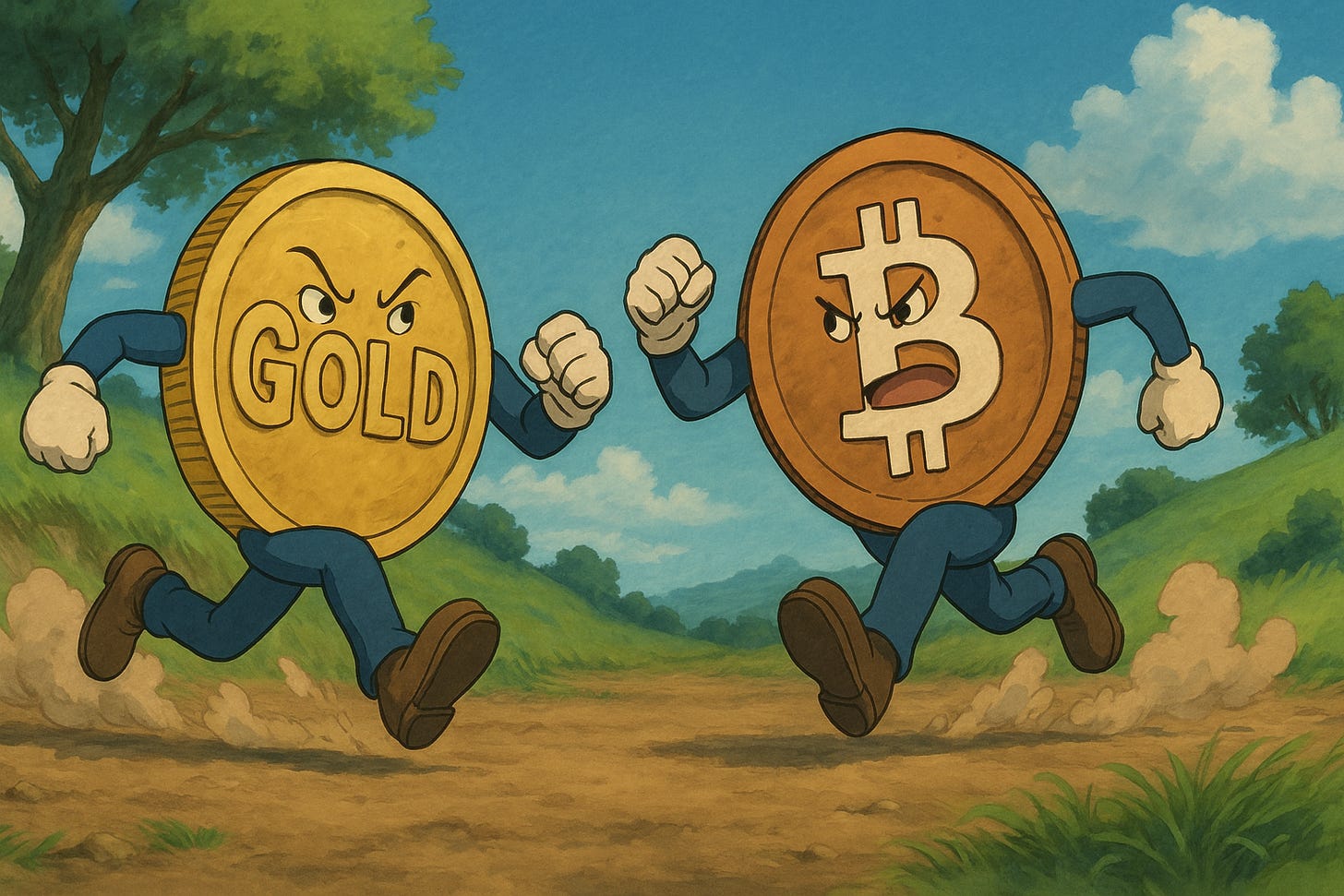Bitcoin vs Gold: A 10-Year Return Comparison That Redefined Wealth
Bitcoin delivers a staggering 39,483% return in 10 years
In the last decade, few assets have stirred as much debate—and delivered as much return—as Bitcoin. Born in 2009 as an open-source monetary alternative, Bitcoin has not only survived market skepticism, regulatory pressure, and volatility, but has also emerged as one of the best-performing assets of the 21st century. When measured against traditional safe-havens like gold, the comparison is staggering.
The 10-Year Performance Snapshot
Bitcoin (BTC)
Price in May 2015: ~$240
Price in May 2025: ~$95,000 (as of this writing)
10-Year Return: ~39,483%
Gold (XAU)
Price in May 2015: ~$1,200/oz
Price in May 2025: ~$2,300/oz
10-Year Return: ~91.7%
Bitcoin has outperformed gold by more than 100x over the last decade. While gold has traditionally been seen as a hedge against inflation and currency debasement, Bitcoin has delivered a level of capital appreciation that gold hasn’t seen in centuries.
Why Bitcoin Outpaced Gold
Digital Scarcity
Bitcoin’s maximum supply is capped at 21 million coins—enforced by code. Gold’s supply, although limited by physical extraction, expands by roughly 1.5–2% annually. Bitcoin’s fixed supply created a unique scarcity during an era of unprecedented money printing.Network Effects
Bitcoin isn’t just a store of value—it's also a global, censorship-resistant payments network. As adoption grew (from retail investors to institutions and even nation-states), so did its value. Gold, in contrast, lacks a programmable network layer.Millennial & Gen Z Preference
Younger investors, more digital-native, gravitate toward Bitcoin as "digital gold." For these generations, Bitcoin feels like a more natural hedge against fiat decay than a shiny metal.Liquidity & Accessibility
With 24/7 trading, borderless transfer, and fractional ownership, Bitcoin offered a level of accessibility gold couldn’t match—especially during lockdowns, capital controls, and crises.
Volatility: The Tradeoff
Bitcoin’s meteoric rise wasn’t without risk. Its volatility remains far higher than gold’s. Massive drawdowns of 50% or more occurred multiple times in the last decade. Gold, while underwhelming in returns, has remained relatively stable—fulfilling its historic role as a wealth preserver, not a multiplier.
Inflation Protection: Both Assets Shine
Gold and Bitcoin both rose in the wake of inflationary fears post-2020. However, Bitcoin's asymmetric upside made it a far more attractive bet for those seeking growth along with protection.
The Future Outlook
Gold will likely continue to serve as a conservative store of value, particularly for central banks and traditional investors.
Bitcoin is increasingly seen as a strategic asset class, potentially becoming a core part of diversified portfolios, especially in a world facing de-dollarization and financial repression.
Conclusion: Store of Value or Engine of Growth?
Gold preserved purchasing power. Bitcoin multiplied it. Over the last 10 years, Bitcoin didn't just beat gold—it redefined what "hard money" can look like in the digital age. For investors, the question is no longer "Bitcoin or gold?" but "What role should each play in a changing financial world?"


